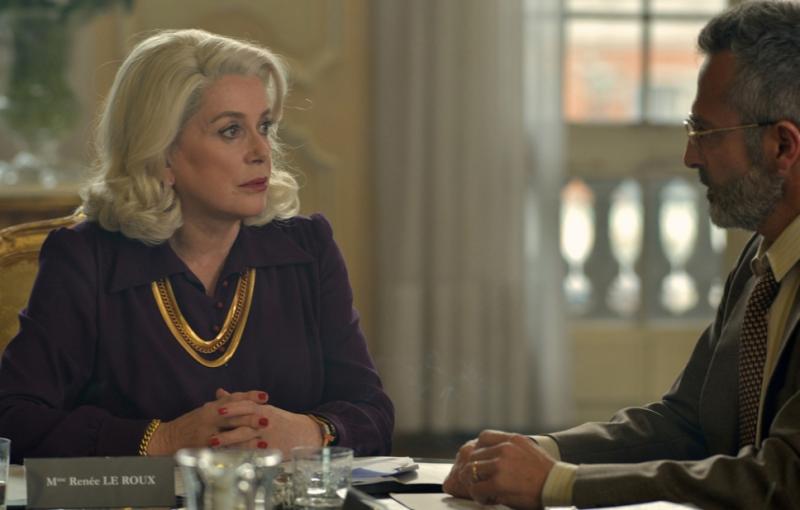Review: In the Name of My Daughter

All I knew in advance about In the Name of My Daughter was that it was based on a true story, just like another of French auteur Andre Techine's recent films, The Girl On The Train. I've been a fan of his work for almost as long as I've been watching world cinema. Rendez-vous, My Favorite Season, Wild Reeds and Changing Times represent some of the best that French cinema has had to offer in the last 30 years.
It really says something about the strong fashion sense of the French (or the fact that I watched it from a screener instead of on the big screen) that I didn't even realize this movie was set in the 70s until I glanced over at the press notes about 15 minutes in to verify an actor's name. There just wasn't anything to indicate the time period at all, I presumed it was a contemporary tale. I was very wrong, although the film does end up spanning over 30 years before the end credits roll.
With In The Name of My Daughter (whose original title, L'homme qu'on aimait trop, oddly translates as The Man Who Was Loved Too Much), Techine teams up with legendary actress Catherine Denueve for the seventh time and gives her the juicy role of Renee Le Roux -- a casino magnate on the French Riviera who has inherited the Palais de la Mediterranee from her late husband. The film, based on her memoirs, gets underway on the shores of Nice in 1976.
Renee's daughter Agnes (Adele Haenel) is headed back to town after getting divorced. Her mother wants to set her up with a job at the casino, but Agnes would rather take her cut of the family inheritence and enjoy her freedom for a change. She begins to spend a lot of time with Renee's right-hand man Maurice (played by Tell No One director Guillaume Canet, looking a little like a younger, but more handsome, Charles Grodin here), who helps set her up with a place to live and drive her to where she needs to go whenever he's not attending to actual business affairs.
The return of Agnes into Renee's life coincides with a phenomenon known in France as the "casino wars." Mafia members were beginning to use casinos to launder dirty money and, in many cases, attempt very lucrative hostile takeovers so that they could use them to their full advantage. While Renee does her best to head off any potential attacks on her casino, family arguments and a fair amount of double crossing make her an inevitable mob target.
Techine is a masterful director, but he gets a little lost here staying so close to the true story that inspired his film that he kind of ends up with three movies in one. For the most part it works, but In the Name of My Daughter is a little overlong and totally switches gears to transition into a courtroom drama in the last 20 minutes. You see, not only did Renee have to battle off the mob, but then her daughter disappeared in 1976. Tension run high as suspicions, manipulation and betrayal become the new normal.
Canet and Deneuve play off each other perfectly, first as friends and coworkers, and eventually as enemies. Their performances are terrific and manage to propel the film forward despite its languid pacing. Cinematographer Julien Hirsch (who also shot Techine's The Witnessess and The Girl On The Train) combines gorgeous widescreen vistas with handheld camera work to create a visual look that is more contemporary than the setting, perhaps adding to my initial confusion about the time period. This true-crime melodrama is elevated thanks to the talent involved, but I could have done without the clunky final act that pushes fast forward in time and finds our lead actors in unconvincing makeup for the not-so-thrilling conclusion.

